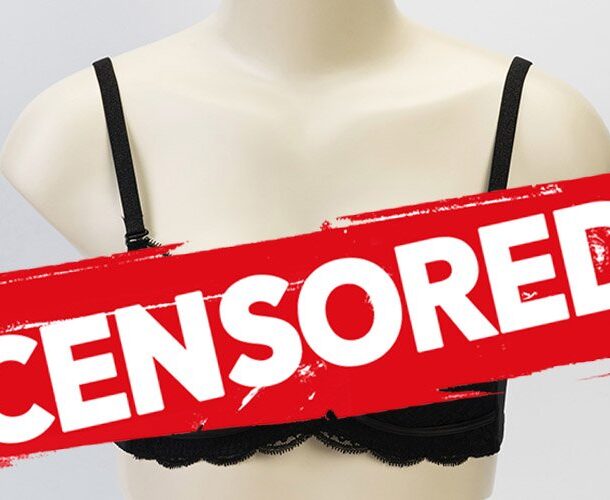
Freedom of expression activists have slammed the recent memo sent to broadcasters instructing them against showing undergarments during home shopping segments.
The Malay Mail reported yesterday that the Film Censorship Board (LPF) had sent a notice to two local stations instructing them that undergarments should not be shown regardless of it being worn by a model or a mannequin. The reason given was that “any indecent visual displays, including advertising ‘undergarments’ will still offend the community”.
“Therefore, the home ministry is of the view that the aforementioned content advertising innerwear is inappropriate to be shown for general viewing… and all broadcasts similar like this should be discontinued immediately,” the letter said, as quoted by the news portal.
Anna Har, co-founder of the Freedom Film Network, said the decision was unfortunate and yet another example of needless censorship in Malaysia.
“Since when are undergarments such an offensive item? They’ve been sold in pasar malams and supermarkets for years, this isn’t pornography we’re talking about.”
She said it was illogical for LPF to be under the home ministry, as they lack the expertise needed for such an area.
“It’s a relic of the 1950’s, when censorship of propaganda was a matter of national security. You didn’t want Japanese or communist messaging, for example, to be broadcast to the country,” she explained to FMT.
“But that’s all obviously changed now, so you have to question why the home ministry would be presiding over things like this now.”
Instead, placing LPF or an equivalent under a more appropriate ministry, like the multimedia and communications ministry, or arts and culture ministry, would make more sense and allow for greater expertise to be applied.
“For example, the multimedia and communications ministry has an industry self-regulated forum to monitor online content. It has the participation of people in the industry and different interest groups. They are people with the right experience.
“The agenda of the home ministry, and I don’t blame them for this, is to make sure nobody complains so as to contain potential civil unrest. So their criteria is about security, when it should also include creative and commercial values.”
The Centre for Independent Journalism (CIJ) also condemned the decision, calling it “arbitrary censorship, media intimidation and moral policing.”
“A common argument in support of censorship is that notions of decency, morals and modesty must always prevail, and so laws and restrictions must be in place to safeguard such standards for the betterment of society,” CIJ executive director Wathshlah G Naidu said.
“However, it should be noted that these concepts mean different things to different people, and what may be indecent to one person may be perfectly acceptable to someone else. The use of such laws and restrictions in such a scenario, thus, must be discouraged.”
She added that such censorship did not take into account proportionality, and questioned what harm the banned content could have caused.
“LPF must clearly spell out why such advertisements are deemed as ‘offensive’ and ‘indecent’, and how it affects the ‘sensitivities of a multi-ethnic and multi-religious society’.
“Failure to do so could be interpreted as LPF imposing its moral biases and prejudices aimed at censoring anything that connotes to or is a reflection of body parts and images. The (government) and its actors must facilitate healthy discussions and education on bodily integrity rather than create more harm by turning such topics into taboo.”
Source: Free Malaysia Today
